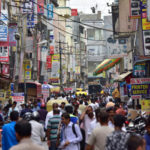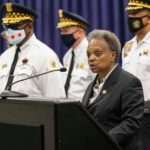Troy Petenbrink thought he was doing his part to help humanity when he signed up for a clinical trial for a COVID-19 vaccine. The first two had gone well and he figured the more vaccines the better in a desperate world.
The Washington, D.C., resident got two sets of shots – one a placebo and one the actual vaccine – in January-February and April-May. Then, he settled in for what he assumed would be a short wait for the Novavax vaccine to be federally authorized.
“I wanted this stuff out there,” he said, citing concerns about the safety of his 91-year-old mother-in-law from the coronavirus. “I was like, ‘Let’s do this, let’s get the ball rolling here.'”
But months later, he’s still waiting for Novavax to apply for that authorization from the Food and Drug Administration. And while other fully vaccinated people are going to gyms, movie theaters and bars, Petenbrink is struggling to convince strangers that he’s protected.
“I really am in limbo,” he said.
A freelance travel writer, Petenbrink had to turn down an assignment because the cruise line only accepts the three authorized vaccines, from Pfizer-BioNTech, Moderna and Johnson & Johnson. He recently tried to go to a bar with his partner, but was turned away because he hadn’t received one of the three FDA-authorized vaccines.
“No one along the way explained any of this as a possibility,” he said of the clinical trial.
About 50,000 Americans are in the same situation, having volunteered for either the Novavax or AstraZeneca vaccine trials.
Both vaccines have shown strong effectiveness and safety data. AstraZeneca’s vaccine has been distributed across the U.K., Europe and other parts of the world.
But both companies have declined to submit their vaccines for authorization in the U.S. Novavax has had issues producing its vaccine and AstraZeneca faced safety questions abroad, though most countries have decided its benefits outweighed its risks, particularly among older people.
Will COVID vaccine booster shots be needed? It’s likely, experts say, but the immunocompromised should be prioritized.
Still, Americans who had either set of shots face trouble proving they’re vaccinated.
The Centers for Disease Control and Prevention did not respond to a request for a comment about their circumstance.
Petenbrink said that when he asked, the CDC sent him “this most vague statement, which is like ‘You are approved for public health purposes.'”
“That’s nice, but it doesn’t do anything for me who wants to live my life and do the things I want to do as a vaccinated person,” he said.
He and others have the normal CDC-issued vaccine card, but anyone who gives it more than a cursory glance will notice the word “Novavax” clearly printed out under the “product name.”
AstraZeneca responded to a request for comment with a statement: “Consistent with CDC guidance, AstraZeneca is working with trial sites to provide vaccine cards to study participants who received AZD1222.”

Stanley Erck, president and CEO of Novavax, described the situation as a “critical problem” that he and others at the company are doing everything they can to address.
“I get more letters about that every day than anything else,” Erck said in a Friday interview.
He said the company’s production issues are resolved and expects to submit a package to the FDA, likely in October, with distribution to begin by early next year.
“We plan on being full-steam in 2022,” he said, explaining Novavax now sees its primary role as providing booster shots.
Petenbrink, who got vaccinated at Howard University, said he knows at least four others who have dropped out of the Novavax study and “got the real” shots.
It’s unlikely that getting additional shots will be risky, though it hasn’t been fully studied.
In a British trial that mixed and matched vaccines, people who received the Pfizer-BioNTech vaccine after a first dose of AstraZeneca were extremely well protected. But no one got two doses before a third of Pfizer-BioNTech, and results haven’t yet been published of a trial combining Novavax’ with other vaccines.
Petenbrink said he’s asked the CDC, Food and Drug Administration and Novavax for their recommendations on what he should do about traveling or the safety of getting another set of shots, but hasn’t heard back from any of the three.
Despite the hassle and the daily medical form he has to fill out, Petenbrink doesn’t regret participating in the trial. But he worries experiences like his will turn people off the next time. “It’s a hard message for other people who look at clinical trials in the future,” he said.
Contact Karen Weintraub at [email protected].
Health and patient safety coverage at USA TODAY is made possible in part by a grant from the Masimo Foundation for Ethics, Innovation and Competition in Healthcare. The Masimo Foundation does not provide editorial input.
This article originally appeared on USA TODAY: Novavax, AstraZeneca COVID vaccine trial volunteers waiting for FDA OK


